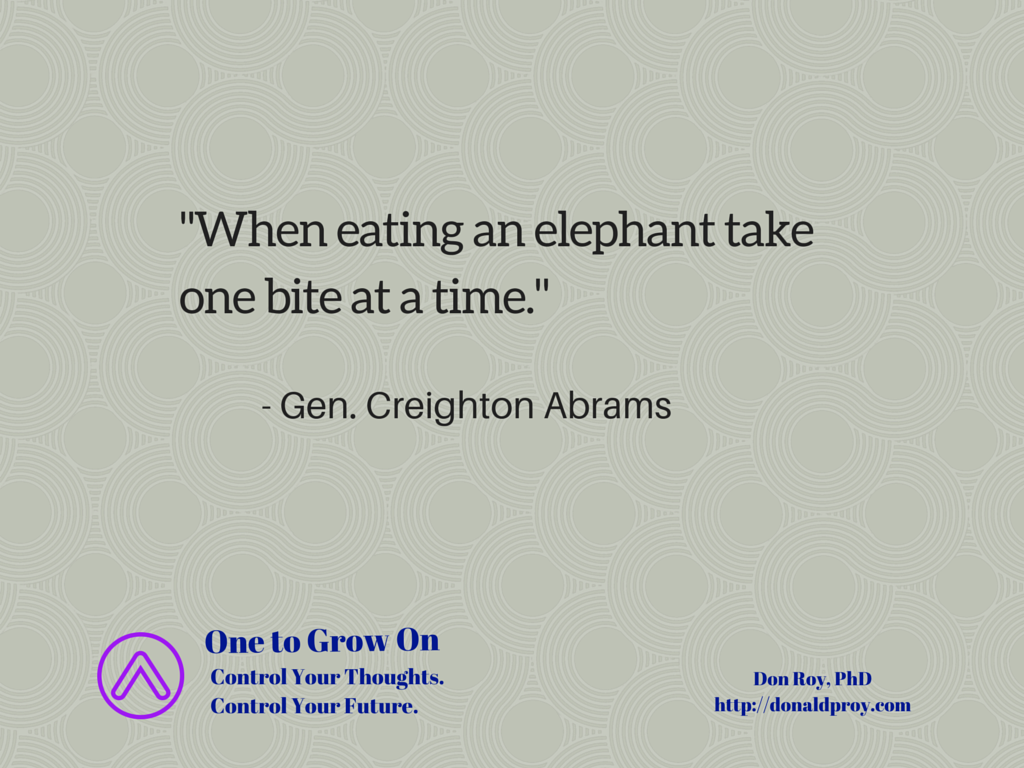Dreams are essential to our existence because they inspire us, breathing life into taking on new projects or forcing us to go beyond our comfort zone. We imagine possibilities for our life that stand to make us happier, wealthier, healthier, or wiser. Dreams can be the catalyst of growth, but our dreams can end up overwhelming us if we are apprehensive in pursuing them.
When Dreams Remain Dreams
A dream can be little more than an unfulfilled longing if not acted upon… and if we could stack all of the dreams left unacted upon they would likely touch the stars in the sky. If dreams reflect a wonderful state we would like to reach, why do they often go not only unfulfilled but untouched? Among the most common reasons that we fail to take action on our dreams are:
- Fear. You may have heard that fear can be thought of as an acronym for “False Evidence Appearing Real.” In other words, most of the fears that we feel are not actual dangers or risk to us. But, if we perceive danger or risk it is real in our minds, and the antidote for our fears is to avoid whatever it is that causes them. “What if my business idea fails and I go broke?” “What happens if I apply for the promotion and get passed over?” Why would anyone want to invest in my venture?” These negative thoughts are dream killers, even if based on false evidence.
- The wrong dream. Sometimes we never act on our dreams because the outcomes we want may be wrong for us or are based on someone else’s dream. When I was a young boy, I thought about becoming a lawyer when I grew up. The reason was that all of the lawyers in my small hometown seemed wealthy and successful to me. If I wanted to be wealthy and successful then being a lawyer would be the ticket, right? Thankfully, I was able to shake that dream on my own, recognizing it was not my dream but the dream of others. Unfortunately, too many people become lawyers, accountants, engineers, or some other professional because it was the dream of their parents or someone else influential in their lives.
- Lack of an action plan. Even when you defeat fear and have the right dream, you could remain stuck in dream mode if you do not have an action plan to turn your dream into reality. In most cases, I don’t think it is laziness or indifference that is creates this roadblock to pursuing a dream. It is lack of understanding about the route to take to get there.
Small Steps on a Long Journey
The lack of an action plan to act on a dream could be due to fear or that the dream is not energizing because it is not our own. Often, lack of an action plan can be attributed to a simple reason: We have no idea where to start or how to plan. The task of moving from point A to point B seems overwhelming. Perhaps it is here that fear is fed and becomes a convenient reason why not to pursue a dream.
Rather than being overcome by the enormity of the requirements of fulfilling a dream, we should heed the advice of General Creighton Abrams. He (along with many other people) have used the illustration of eating an elephant one bite at a time to make the point that grand undertakings are completed through a series of small steps. Recently, I had a dream for a book I wanted to write to help people transform their personal brand over the course of a year. The challenge: Writing 52 essays, with each essay being 600-700 words, and write them by the end of October. It would have been easy to stop right there and blow off the dream as unattainable (I know that because I have done so many times in my life). Instead, I broke down the project to pinpoint the number of essays I would need to write each week to be finished by the target date. To my surprise, I realized the goal could be achieved if I stuck to the plan I devised. I am pleased to report that I met my writing goal for the first week. The feat must be repeated over the next twelve weeks, but the combination of having a plan and evidence that I can do it is energizing me to keep building momentum.
Are You Hungry?
This week, take General Abrams’s advice and eat the elephant that is your big dream or project one bite at a time. When you go to a restaurant and the server brings out a plate filled with generous portions, you probably don’t say “take it away- I can’t eat that much food.” If you are like me, you dive in and take one bite at a time, enjoying the moment. Do the same to make your dream a reality.


